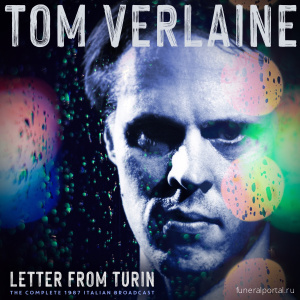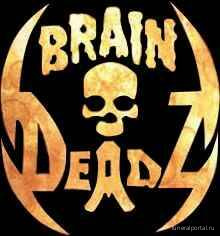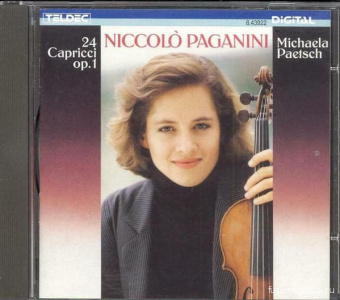Rodger Dean Duncan Contributor Careers
I cover leadership issues that make or break your workplace experience
It’s been said that loss reminds us about the worth of things. That seems especially true when it comes to the death of a friend or loved one.
Over the past year and a half, I have lost several associates, including one treasured pal whose friendship dates back nearly six decades. The Covid pandemic put the brakes on traditional funerals. But thanks to platforms like Zoom and YouTube, at least some virtual memorials were possible.
All of this served as a sober reminder that—regardless of our age or health condition—end-of-life planning is something that deserves the attention of all of us.
Yes, this is a subject that many (most?) people either consciously or unconsciously avoid. But for a long list of reasons—not the least of which is cushioning our mortal departure for our survivors—we should deal with it.
For ideas, I reached out to Karen Bussen. For more than 15 years, Karen was a celebrity event planner, producing one-of-a-kind events for A-listers and luminaries of business and culture. Then she teamed up with her friend Elizabeth Meyer Karansky, a funeral industry superstar. They formed a new business focused on planning funerals—what they call “farewelling.” (See www.myfarewelling.com.)
This is not at all morbid. In fact, talking with Karen brought a smile to my face as I contemplated the many options for our earthly farewells.
Rodger Dean Duncan: How is your work with farewell planning both similar to and different from your previous work as a wedding planner?
Karen Bussen: I was shocked to discover there are almost the same number of funerals as weddings each year in the U.S. (about 2.5 million each). Both events involve complex family relationships and often differing opinions. And many of the logistical elements overlap—organizing wishes, making decisions about preferences, even the aspects of hosting people for a service or reception with a program, food, drinks, speeches, audio visual elements, music, etc.
Several things are quite different. For one, the timeline for planning a farewelling may be much more compressed. Whereas we might work on a wedding for a year, we may have only days or weeks to put together a beautiful tribute.
Conversations around planning a funeral often literally take a more hushed tone. A memorial planned with a bit more time having passed (or with a well-defined plan of the person’s wishes) can feel more joyous, more a celebration of the life lived than something rushed together.
Duncan: Why do so many people delay (or outright ignore) planning for their final farewell?

Karen Bussen
.Bussen: First, I think it has a lot to do with the way our culture has medicalized death over the past hundred years. We used to be a lot closer to the experience, and death was something we dealt with more personally in our homes and communities. For decades it’s been a taboo topic, something seen as apart from—rather than a part of—our whole human experience.
Next, because laws and processes and paperwork can seem daunting, people just see this type of planning as too complex, overwhelming, and something they are obligated to do, as opposed to looking at it as a process to which they want to give some thoughtful attention. They don’t realize they can break the planning down into more manageable pieces over time, and that the effects can be truly rewarding and life-affirming.
Duncan: What’s the key to addressing end-of-life planning in a way that’s not morbid or depressing?
Bussen: Most people hear that lawyerly voice in their heads saying, “You should get your affairs in order, so you won’t be a burden.” I don’t think “should” and “burden” work as motivators in our culture. I suggest approaching your end-of-life planning in terms of the “coulds” and all the gifts it brings—not just to your loved ones who won’t have to fight about money or whether you wanted to be buried or not, or who gets the paintings—but also to you yourself. You could do this for those you love, as a beautiful and thoughtful gesture.
Creating a plan lets you feel a sense of empowerment and even comfort. My own experience is that planning has helped me be more mindful in my daily living. It’s like that old Stoic expression, “Momento mori.” When we shine a little light onto this essential part of our human experience, when we open the door to it just a little, it helps us live more fully right now, and to appreciate each precious moment.
Duncan: In addition to a will, what legal documents should be included in farewell planning?
Bussen: It really varies depending on your financial situation, any dependents, and other factors, but if they apply, you’ll want to include trusts or other such documents, for example, as well as deeds and other proof of assets or instructions on where to find these items.
The other most important documents are your health care proxy and/or living will. There are a number of variations of these forms and documents, but they are there to communicate your instructions in case you are incapacitated. They tell loved ones and medical professionals what is and is not acceptable to you in terms of life-saving measures, and a proxy grants someone of your choosing the right to make decisions on your behalf. So many people overlook these crucial documents, you can find them online by searching “advance directive” and your state. Even young people should fill these out!
Duncan: What role does good farewell planning play in helping survivors deal with their loss and grief?
Bussen: We speak to so many families whose loved one didn’t have a plan. Those left to organize are often really tortured by the pressure of making “the right decision” or completely overwhelmed by all the minutiae of trying to find account passwords, insurance policies or other key details that may have only been known to the person who has died because they never gathered them in one place.
Cleaning out a loved one’s home after their death can be another distressing responsibility. But the Swedes have a very cool solution: it’s a practice called dostadning or “death cleaning.” This is where a person, whether they’re elderly or just aware that they have limited time left, evaluates their own possessions, paring things down, donating or giving away beloved objects, and generally organizing their space to make it easier for family later. Small gestures like this can alleviate so much stress for those who are grieving and can help them on their healing journey. I would suggest that the lightness that emerges from doing this type of mindful activity is also a gift for the person doing their own organizing.
Duncan: How can a person best help a dying (or healthy-but-aged) loved one plan a farewell when the loved one is resisting the reality of the need?
Bussen: One idea is to start softly. Rather than saying, “Mom, we need to sit down and do your end-of-life planning,” try bringing it up in a more casual way. Mention that you recently read a great article or saw an interesting website that got you thinking about what you want for yourself, then ask their opinion about it.
You can also start by just offering to help them get organized—you can help go through papers and start to learn more about what’s where and how they feel about things. If it’s an organizing project, it may feel more productive rather than centered around “final planning.”
If they’re really resistant, just be honest. Tell them how much they mean to you and how much you want to get it right. Ask them to share the three or five things that are most important to them so you can make sure to honor those priorities. That may open the door to a bigger conversation.

. .
Duncan: What are the differences between a memorial service and a traditional funeral?
Bussen: The main technical difference is that the body of the person who has died is generally present at a traditional funeral, whereas a memorial is usually a gathering that takes place after the person has been buried or cremated.
In terms of format, many traditional funerals have some sort of religious framework, with prescribed rites and often a faith leader or celebrant to lead the service. Traditional funerals are largely more somber occasions, but even that is changing a bit as people request more personalized tributes that reflect the loved one they’re honoring.
Memorials can take on almost any format—from a seated gathering with music and speeches, to an “active memorial” where friends of a former marathoner run a few miles in their honor and stop for a pancake breakfast and a toast with mimosas afterwards. A memorial can have a theme that reflects the person’s interests—sports, golf, food, etc., and may offer the chance for sharing more informal stories or remarks that wouldn’t really make sense at a traditional funeral service.
Duncan: What have been the special challenges of planning a funeral during the Covid pandemic?
Bussen: I don’t think we’ve seen any challenge like this in most of our lifetimes. Funerals are about gathering, and community support is such a huge part of healing. There is nothing worse than not being able to be together at such a difficult time. There were also circumstances that made some traditional practices impossible, especially when timing of a burial or cremation was of the essence for a family.
That being said, we have seen heroic efforts by industry pros, or as we like to call them, our “last responders.” And we’ve witnessed such creativity and flexibility from families who have either held small services or postponed a memorial till everyone can be together or have innovated using technology to bring everyone together for surprisingly poignant tributes.
Duncan: How are people using technology to personalize memorial services?
Bussen: Technology companies, especially in light of the pandemic, are innovating so many new ways to bring people together to celebrate a loved one, with slide show apps, live-streaming platforms customized for the space, and digital downloads for things like memorial welcome signs and photo collages.
We’ve seen incredible growth in our free memorial websites over these past six months, with people uploading photos, stories, and event details and sharing links among friends and family.
Providers are looking for new ways to offer quality live streaming for funerals and memorials. We see that trend as something that will continue into the future, as hybrid experiences will continue to evolve, and we predict that in-person memorial events will be augmented with virtual components to accommodate those who want to pay tribute from all over the world. We recently produced a funeral that had 10 people in attendance in person, and another 170 virtually from five different countries.
Rodger Dean Duncan








